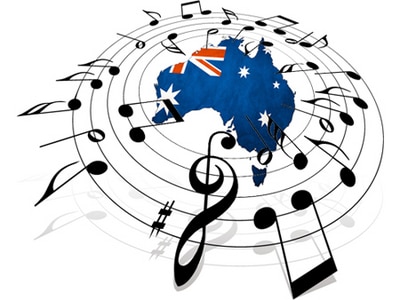Music can be powerful, possessing the ability to conjure emotion in a few minutes what an essay never could. Australia has a rich history of talented singers, writers, and performers creating music that is unique to the sunburned continent. Australia also has a rebel culture, hidden in plain sight. Founded by reluctant prisoners, enthusiastic adventurers, and those escaping their birth land to call Aboriginal land their home, with a history of empire and defiance, the music can reflect this combination, none more than in the songs against war.
Few songs express the sorrow felt by soldiers when they return as well as Redgum’s “I Was Only 19.”
Lead vocalist and guitarist John Schumann wrote the song based on experiences he had heard from veterans and their journey from youth to maturity. The song is rich with slang familiar to those who served in Vietnam with the Australian Army. The original title, “A Walk in the Light Green,” refers to the shading on the map of vegetation density, light green meaning less vegetation but with a higher chance of contacts, dark green for the denser jungle. It’s a song for the diggers who fought in Vietnam. As a song it has become one that reflects on war itself, its futility and waste. It may be for the soldiers—in parts written by them—but it is also very much an anti-war tribute.
The lyrics to “I Was Only 19” unveil the realities faced by returned soldiers once “home.” The Vietnam War veterans found themselves a forgotten bunch and the song’s popularity helped to raise a national awareness. Men who had been in war, a failed and now unpopular one, trying to cope and survive in a society that did not understand the physical and mental damage incurred now had a musical advocate.
Cold Chisel’s break out hit was the song “Khe Sahn,” a catchy number about an Aussie soldier’s transition from war to civilian life, delving into addiction, trauma, and bad relationships. Unlike Redgum’s take on the issues some veterans face, Chisel produced a more upbeat sounding rock anthem that marched into the 1980s. Though the lyrics when heard are depressing, perhaps go unnoticed despite its constant play on most Aussie radio stations even to this day.
PTSD is an acknowledged and publicly discussed consequence of war today, but when “I Was Only 19” was first heard it was a dark secret. Soldiers, even when remembered and known, suffered in painful silence. The civilians whose lands they visited remain forgotten, faceless props of history. PTSD, injury, and death occurs for them too, though they rarely get song tributes. For Midnight Oil it would be their call to arms to sing about war and injustice the world over. Unlike Redgum’s folk sound for the soldiers, Peter Garret, the front man for Midnight Oil, produces an in your face rock to push the point.
The Midnight Oil song “Blossom and Blood” begins with the famed soundbite from President Eisenhower’s military-industrial complex speech. Musically an aggressive tribute to those lost and the impact war has on society and family, “You talk of times of peace for all. And then prepare for war,” is a lyrical punch to the ears of war masters who lie and manipulate so that armies are filled with eager sons who die and kill. Other Midnight Oil songs such as “Forgotten Years,” “Put down that Weapon,” and “No Man’s Land” are just as powerful and listenable tunes against war.
For a nation like Australia there is a healthy distrust of the “Pom” and “Yanks,” the awareness that we exist as their little brother in policy and conflict. Though any wariness of the big allies pale in comparison to the Australian fear of others. Australian history is marked by its eagerness to serve empire; first the British, and now the Americans. The Midnight Oil song, “U.S, Forces,” is a criticism of U.S. military interventions.
The lyrics of the Australian bush ballad “Waltzing Matilda” were written by Banjo Patterson about a man down on his luck who is caught stealing sheep. Written during the depression of the 1890s, it’s a “battlers” song, the spiritual anthem for white Australia, the uniting sound that when sung abroad raises a chorus of those who are missing their home Down Under. For soldiers fighting and serving abroad, it can be the sound of home. To invoke “Waltzing Matilda” in a song raises a sentiment that is unique to Australia. In 1971, Eric Bogle did just that with “And the Band Played Waltzing Matilda,” about a young soldier who loses his legs in the Gallipoli campaign during World War I. It’s a battle more sacred in Australian history and lore than the federation of the nation itself.
The Battle of Gallipoli is a peak of Australian historical pride. A song about a young soldier who goes from a traveling young man in Australia to one of the many ANZACs fighting at Gallipoli is a powerful and tragic one. Many singers have done versions of “And the Band Played Waltzing Matilda,” though the original rings with a sadness, a tragedy that only war can bring to not just to a man who loses his legs but to a nation mourning men who died for an empire that viewed them as disposable. In their remembrance of the courage and sacrifice of their soldiers, Australians tend to forget or perhaps choose to ignore the futility and sacrifice of their warriors disposed of with little regard by imperial masters in war.
The sadness of Bogle’s song’s pace lends itself for remembrance ceremonies. Though remembrance should be about reflection as well. Why must Australians always go abroad to fight, from the days of Breaker Morant fighting the Boers to the age of Ben Roberts-Smith in Afghanistan? The weeping lyrics layered with “And the Band Played Waltzing Matilda” resonate to this day; though the deployments may differ and technology has changed, young soldiers losing limbs and suffering from the trauma of war remains.
Before his reputation was tarnished, Rolf Harris was an Aussie icon. His version of the 1902 American song “Two Little Boys” by Morse and Madden is a tender rendition. Referring to an incident during the Boer War, two Aussie servicemen rode an Australian horse together to escape an ambush, leaping barbed wire and avoiding incoming fire. The men and horse all survived. The lyrics humanize the incident, telling a story of the innocence of youth turning into mateship under fire. That Aussie take on friendship is a key component to the Australian warrior mythos.
The imagery of two boyhood friends, maturing and fighting in a war together is romantically tragic. Though traditionally seen as a right of passage, its an occurrence of loss and pain that can often ruin lives. The lyrics for “Two Little Boys” captures that combination.
Similarly, the band 1927’s song “Compulsory Hero” begins with two boys playing, “Remember the times when when we were kids, playing war games in your yard, everybody had to be a hero, and get one in the heart.” The song goes on to invoke the generational call to service (“its war without choice”), leaving home for a place where all they do is try to make it home alive. Normie Rowe, the lead singer from 1927, drew from his own years of service as a conscript fighting in Vietnam to give us a song of heartfelt truth.
It is assumed for nations chronically at war that young men are to to be grown to someday fight abroad. The call to arms is a duty that one must endure in order to be both a man and patriot. The belief that they are defending their kin from distant threats, protecting and ensuring freedom, is a vile lie to convince them to fight. Rather, they serve a government that invests their blood into its own self interest. The salesmanship is in convincing the warriors that imperial wars are a righteous cause. Always for a good, until the end and afterwards when the warriors are abandoned. These two songs share that boyish eagerness, the youthful innocence that can convert boys into men of war, and the sad afterwards.
The original war fought by Australians is often forgotten. It is a cliché to say that histroy is written by the victor, but in many ways so too are the songs, at least by the “victorious” culture. The band Yothu Tundi in 1991 came out with the hit “Treaty,” about the two Australia’s. It’s a song that is catchy and very Australian while also being one that protests political lies that layer over a culture that exists while also not-existing. For much of Aboriginal Australia, history is a tapestry of traditional stories and those that are infected by a national narrative which apparently began in 1788, when imperialism arrived. “Treaty” is a song that is in someways anti-war but also a call to peaceful arms, a defiance against betrayal and a voice for the marginalized. It’s the song sung by those whose ancestors lost a war that they did not seek, the voice of the other side of a settler-colonial nation. The unpopular voice, even if for a little while a song or the culture itself is in vogue.
One needs not be anti-digger to be anti-war. It’s after all in keeping the soldiers home and not subjecting them to the misery of war that one can support soldiers. Though like most anti-war media it is conflated with a hatred of all things that most take pride in: national identity and soldiers. The only time that songs protesting war generally become acceptable is when it’s too late, when a war has run its course and the dead have been piling up long enough for the public to care and the maimed return home in such numbers that it’s no longer possible to ignore. To be anti-war suddenly becomes “pop.” Some music will tenderly dance between tragedy and courage, celebrating the soldiers without calling out the war itself. Lyrics about suffering, loss, death, and destruction are the call out. Tears of the survivors are the rebel’s chorus that came too late to be heard by the dead.
Few musicians will go all out, but in the fringes they exist and always will. To be at the top of the charts it takes nuance and delicate writing and timing to ensure such a thing for as a rebel’ss chorus. The weight of the public needs to be on the song’s side. The tragedy is that war, despite all of its terrible outcomes and most people’s claims otherwise, is popular. It’s a collectively understood “necessity.” Another obligation in the splitting between evils that societies generally calculate at the expense of others. Songs against wars push back against this notion. To be antiwar is punk. Australians have many talents and some of its musicians are rock stars for peace.

































